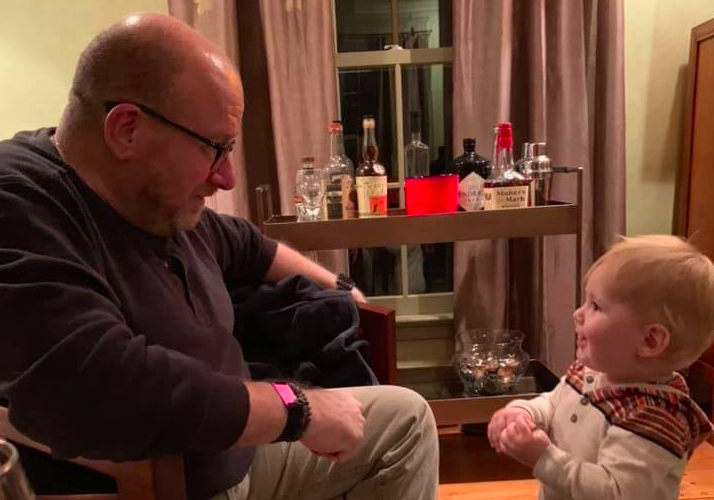Brightview Senior Living corporate director Cole Smith explains why your next visit with to your aging loved ones is an opportunity for early dementia detection. Here are 10 signs to look for.
In a typical year, the holidays are a time where families come together to celebrate the season. As we know, 2020 was anything but normal. It was estimated that one in nine Americans spent the December holidays by themselves, self isolating. About half of Americans, or 48 percent, spent the December holidays with only members of their household. When you factor in that in 2019, 5 million older men and 9.7 million older women lived alone, you can imagine that quite a lot of elderly adults had a lonely season last year.
With vaccinations and boosters now widely available in the United States, the 2021 holiday season is certainly looking up. In fact, Thanksgiving holiday travel this year was the highest since 2005, with 53.4 million travelers total, according to recent data.
The holidays may be one of the few times adult children can visit their out-of-town senior parents and evaluate how they are maintaining themselves and their homes. As we pack our bags and head to our loved ones’ houses for holiday gatherings, it is more important than ever to familiarize ourselves with the early warning signs and symptoms of Alzheimer’s disease, the most common form of dementia, which include challenges with memory, thinking and behavior over time.
You may not realize a loved one has Alzheimer’s until symptoms become severe, so this holiday visit, here are ten warning signs to look for:
1. Remembering things that just happened is a struggle
Short-term memory disappears quickly with Alzheimer’s, and it does not just involve the occasional misplaced wallet. You may notice your parents checking the freezer six times in 30 minutes searching for the ice cream they already ate, or perhaps repeating a story they shared just an hour prior.
Other examples:
- Asking the same question over and over again
- Becoming confused about time, people, and places they would normally know well
2. Familiar tasks become difficult
Forgetting to complete routine activities such as showering or other hygiene tasks is a warning sign. From a holiday standpoint, be sure your parents can recall their staple recipes they once made with ease, and look out for the smaller mishaps such as forgetting to turn off the oven when baking, which can become safety issues.
Other examples:
- Not being able to follow complex, multi-step instructions
- Decline in personal hygiene
- Decrease in usual standard of housekeeping
- Scorched pans or pots
3. Emotions become more difficult to regulate
Take note of minor irritations that cause your loved one to have an atypical reaction. For example, irritability with a slow-moving cashier, or erupting with rage when you complete a task that they forgot they asked you to do, are all signs of emotional changes.
Other examples:
- Higher than normal stress levels
- More moody or depressed than normal
- Feeling overwhelmed when emotions strike
- Apathy, or withdrawal from work and social activities they once enjoyed
4. A Changing concept of time
Your loved one may have more challenges or difficulty in major events, such as anniversaries, holidays, birthdays, and more. You may also notice challenges with them understanding situations that aren’t happening presently, such as a planned event.
Other examples:
- Missed doctor and dentist appointments
- Not changing the month on their calendar
5. Accidents become more frequent
Seniors with Alzheimer’s often become clumsy because they forget about a bookshelf that has been in place for years or misjudge the distance between themselves and a table or chair. A loved one may also have difficulty remembering road rules or judging distances, leading to an increase in minor accidents.
Other examples:
- Difficulty navigating stairs or walking
- Recent falls
- If they’re still driving, recent violations or accidents
- Reluctance to walk usual distances
6. Gradual withdraw from social life
If a loved one is not an introvert, this can be alarming. They could struggle to remember the names or faces of friends or forget the rules of activities they once enjoyed, such as how to play a favorite card game. This can result in isolation when a senior realizes something is wrong but isn’t quite sure what’s happening with their mind.
Other examples:
- Interest declines in activities they normally enjoyed
- Reluctance to leave the house
- No longer involved in clubs, faith communities and other organizations
7. Word retrieval slows
Alzheimer’s disease makes it difficult for seniors to remember or understand common terms. Instead of requesting their coat, your parents may ask you to bring them “that fuzzy thing with buttons” or mix up common words. For example, “put the fridge in the broccoli” or “place the dryer in the hamper.”
8. Judgment declines
Dementia damages the cells needed for logical decision-making, and as a result, your loved one may fall victim to a phone scam or give their Social Security number to a stranger who knocks on the door.
You may also find that your loved one does unsafe things, such as crossing a busy road without first checking for moving vehicles.
Other examples:
- Bills are piling up and being neglected
- Excessive purchases or donations
9. General health decline
Vision loss commonly occurs in concert with Alzheimer’s disease, though issues may not show up on a regular eye exam, as dementia damages the neurological processes that affect vision rather than the eyes themselves. Pay attention if your loved one mentions that colors seem less vibrant or depth perception seems off.
Other examples:
- Changes in weight due to inability to recall meals
- Difficulty cooking
- Loss of taste or smell
- Difficulty with tasks that require fine-motor skills, such as buttoning buttons or tying shoelaces
10. Cognitive challenges impact daily life
Everyone forgets things occasionally, but people living with Alzheimer’s disease are rarely able to recall newly learned information.
While there isn’t a cure for Alzheimer’s at this time, symptoms can be alleviated if caught early. If you think your loved one is showing early signs of dementia, the next step may be seeking a diagnosis. Learn more about Alzheimer’s early signs and stages, and talk with a doctor about next steps.
Cole Smith oversees every Brightview Senior Living community’s Wellspring Village — neighborhoods designed specially for residents with dementia to feel like home and be intuitive, where staffing ratios accommodate personalized care, and residents move about freely. Smith helps support and educate families dealing with a dementia diagnosis.



